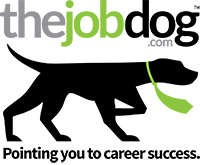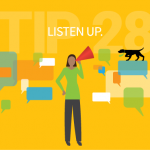Career Tip 29: Get in the Know – Preparing for the Interview
Preparing For Your Interview.
They called. They invited you for an interview. This is the job you really, really want. What do you do to prepare? People often overlook the following three essential areas of preparation.
Know Yourself
Focus on preparing your Qualifiers, Differentiators, and STARs that connect with this particular job. Refer to Tips 6 and 30.
Know what you are worth on the market. If they ask you about your salary goals, one potential answer begins, “I would like…” A better answer is, “I’ve done some research and found that the average market value of this position is…” Your choice.
Know the Company
The more you know about the company, the more likely you are to do well in an interview. It is just too easy to spot candidates who did not take the time to do a bit of basic research. Who wouldn’t want to know all they can about a potential employer? Knowing as much as you can about the company may provide numerous opportunities for you to make connecting statements and to ask strong questions during the interview.
However, if you know more about the company than the interviewer does, you could appear intimidating, which could work against you. Consider what you say and to whom you say it. Allow the interviewer to be the one in the know.
Know the Industry
Research the industry. Can you name a few major players in the industry? Who are the suppliers? Are there notable customers? Search the Internet, press releases, and annual reports. If you have contacts, talk to others in the industry. Especially for professional level jobs, failing to do your research will tell interviewers you did not care enough to take the time to prepare. However, the same comment from above applies here too: don’t be a know-it-all.
Questions You May Want to Ask an Employer
The appropriate time to ask the following types of questions is when asked by an interviewer, “Do you have any further questions for us?”
- What is the likely career path for an employee hired for this position? Are there alternative career paths?
- What departmental objectives are currently not being met and would need to be immediately addressed by the employee you hire? Are there particular long-term project opportunities associated with this position?
- How will you know at the end of six months that you have made the right selection decision? Are there specific goals and objectives for this year that need to be met?
- Does your website have a comprehensive list of press releases? If not, how would I access your press release history?
- Who are the significant internal customers for this position? What are their expectations? Will they be part of the interview process at a later date?
- What is the organization’s practice for funding professional development seminars and certifications? What is your educational reimbursement policy?
- If we go up the organizational chart one or two levels, what does senior management expect from a high performer in this department? What accomplishments are likely to catch their attention?
- Are there internal employees who may be a candidate for this position? Why might you decide to choose an external candidate?
- Are you free to describe the situation that led to this job opportunity being available?
- Have others left this job or department in the last year or so? If so, can you can tell me what led to their decision?
What Does Dressing for Success Mean Today?
Here’s an email sent to The Job Dog that considers the topic of interview attire.
Dear Dog,
Thanks to your advice, I am now reconsidering what “dress professionally” may mean for each new interview. As you know, in the past, for me this has meant a tailored, wool, conservative dress suit, a dressy blouse, and simple yet good jewelry, etc. I’ve had several interviews and always followed this approach. Each time I left the interview feeling it went well. However, each time I got news that I was not selected. Why? I had the skills they were seeking. The feedback in every case was something like, “We really like you. You’re very professional. We just believe that another candidate better fits our culture.”
It gets discouraging. I’d always done my homework and could speak intelligently about my strengths, the company, and the industry. So just what was going on that I didn’t fit?
While pondering what I may be doing wrong, a topic I had not considered came to mind. That is, how I dressed for interviews. I realized that I had never been interviewed by anyone in a suit, not once. My interviewers were invariably in business casual attire—often highly casual attire. Could it be that my top-end business professional suit approach was scaring people off? Possibly.
I decided to test my theory out with my next interview. It was a small company, and I was interviewing for a professional, non-managerial position. My new interview outfit was a pair of dress slacks and a coordinating sweater. My interviewers were dressed in a similar fashion. I felt comfortable, and they seemed very pleased with me. Result? The best and perhaps most relaxed interview to date. I was invited back for a second interview, the first one of those. I am going to remember this lesson. Dressing for success can mean different styles for different situations. Wish me luck!
Molly D.
Checkpoint
It is just this simple: the time to get it right is before the interview. Too many people we have met with over the years recall things they now wished they would have done differently if they had prepared. That is why The Job Dog wrote this Tip.











Thanks for sharing great Behavioral interview tips..This site is very helpful for me and other students who are fresher and preparing for an interview.this is Very impressive and insightful article. You’re doing great job to help people to crack interview. Usually i won’t greet anyone. But For your this great helping article i don’t have words to express.Thank you so much for sharing great content. Keep writing!